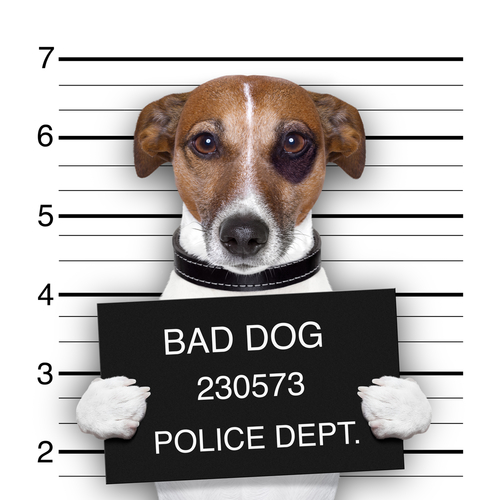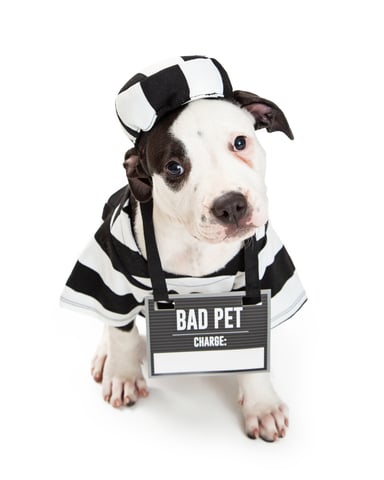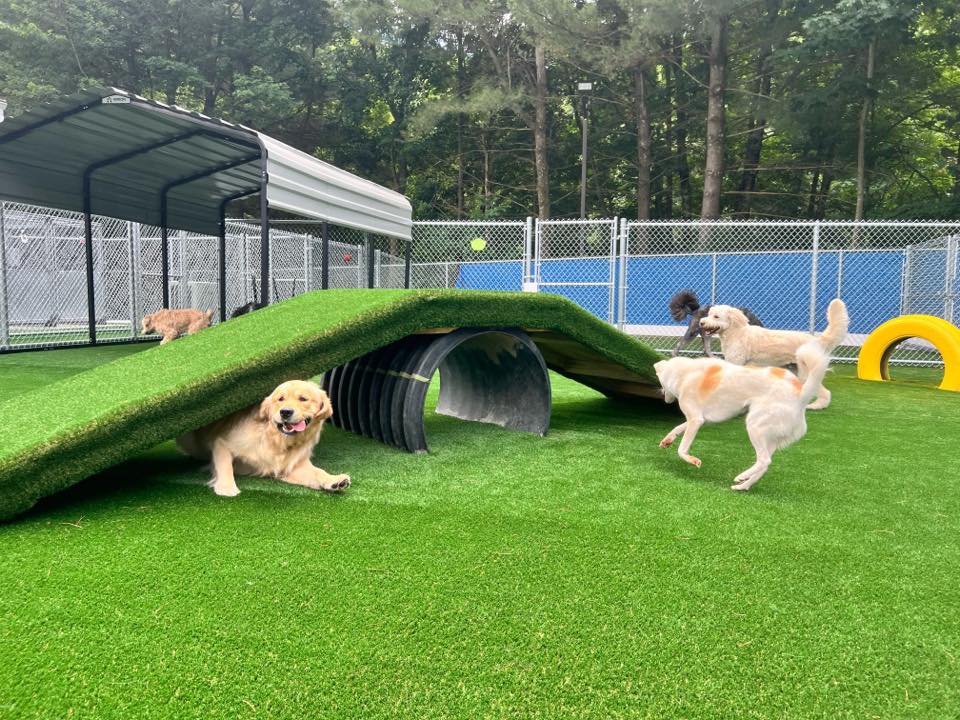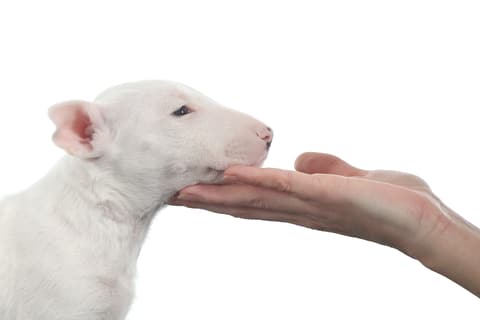Dogs & toddlers learn words about the same.

I recently read an article about teaching your dog a vocabulary. The article represented that dogs have the ability to learn spoken language similar to a toddler. Parents of toddlers help their child learn by repeating names to identify objects and people. It makes sense for us dog “parents” to do the same with our dogs.
I’ve always talked to my dogs, using nouns and verbs, so my dogs have a reasonable vocabulary. I remember our family dog when I was a child who definitely knew what “Want to go for a ride?” meant. She loved riding in the car, and got very excited when she heard the word “ride.”
Years ago, I easily taught my bearded collie to bow on cue. The first thing Cannon always did when I let him out of his crate was to stretch. As I was opening his crate, I’d say, “Bow,” and he’d come out and stretch. It was a simple transfer to give him the cue to “bow” in another location. In this way, he easily learned to bow on cue.
Another example is easily teaching my dogs to go up or downstairs on cue. My house is a split entry, so the dogs often go up and down the stairs—coming in from the garage, going down to the laundry room, and lots of other times. I don’t want my dogs rushing past me on the stairs. To avoid possibly being tripped or knocked down, I want them to go first whenever I’m going up or downstairs. I could tell them to wait while I go first, but it makes more sense for them to go ahead of me. So as I head for the stairs, knowing they’ll be right with me, I pause at the top of the staircase and say, “Go downstairs.” If I’m going up, I say, “Go upstairs.” And they do.
In the beginning, the dogs don’t know what these cues mean anymore than a toddler immediately understands that “Mama” is the person saying it the first time he or she hears it. But after a few repetitions, they (and the toddler) get it.
It wasn’t until I read the article that I started thinking about the broad range of words that my dogs do know. They easily pick words out of sentences that may be unrelated. Two very popular words in my household are “bones” and “cookie” even when used in sentences. “Let’s get you a bone” sends the dogs to the refrigerator where they know I’ll be passing them out. “Find your bone” send them searching the yard to get one. In that case, there are two word they know, “find” and “bone.”
If I asked someone to pick up bones at the grocery store, “Don’t forget to buy some bones at the store?”, the dogs’ ears would perk up when they hear the word.
Larry gets excited when I’m getting ready to go to work. But If he’s not coming with me and I say, “You’re staying here,” he goes into his crate on his own.
Larry doesn’t love having his nails done, so when I say “I have to do your nails,” he looks sad and lowers his ears. But he’s such a good boy that hearing “nails,” he willingly jumps onto the couch where I do his nails.
Teaching your dogs a vocabulary can be helpful. My dogs understand “move” (get out of the way); “back up” (self-explanatory); and “let’s go” (come along with me). Brio puts his head into his own GPS collar when he’s going outside. I simply say, “Come get your collar,” and he walks right into the collar.
Teaching your dog a vocabulary is simply using a word or words in the same context whenever you can. After a number of repetitions, your dog will make the association with the word and the activity. If you aren’t already teaching your dog words, try it. It’s easy and fun!







